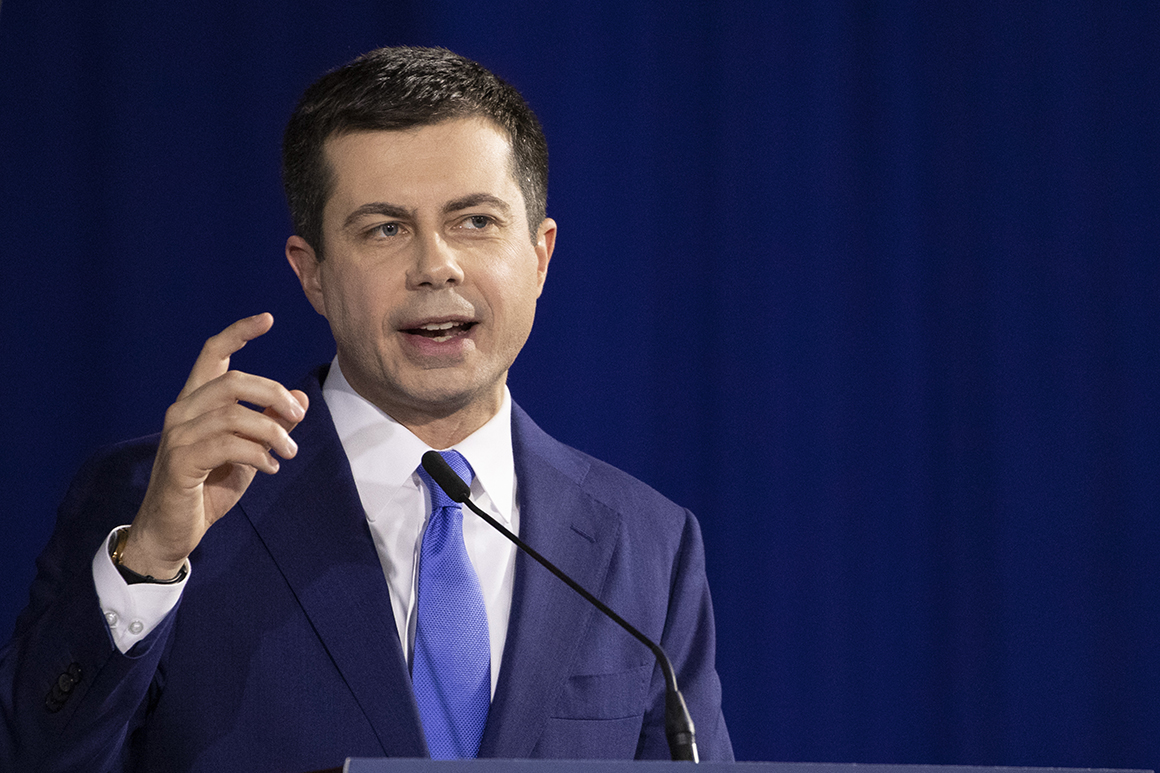
The rural counties “will be significant,” said Ernesto Apreza, who led Kamala Harris’ campaign in Nevada before she dropped out of the race in December. “In 2008, that’s how Obama won, and I think they’ll play a similar role in 2020.”
“Sanders and Warren spent a lot of time in the rural counties early on, but a lot has changed since last summer, and if Buttigieg catches lightning in a bottle in the rurals, then he could be very, very competitive in Nevada,” said one former aide who worked in Nevada for a now-finished presidential campaign, granted anonymity to talk about the state candidly. “He’s gambling on that strategy, and it’s a smart one.”
Last summer, Buttigieg lagged behind Elizabeth Warren and Bernie Sanders in organization here, but he quickly scaled up, and he now boasts the most offices in northern Nevada. Earlier this week, Buttigieg swung through Carson City, Sparks and Elko, a sweep of smaller northern Nevada communities where he drew hundred-person crowds, some of his biggest in the state.
Elko County Democratic Party Chairman Steve Anderson called Buttigieg’s team the “most prominent” in his area.
“Sanders has a good foothold here,” Anderson said. “But so does Pete.”
But Buttigieg wasn’t the first to show up in the rural corners of the state. Warren and Sanders built machinery here early, said Alex Goff, a Democratic National Committee member from northern Nevada.
“Pete scaled up more through the fall, but because it takes time to find voters, identify voters, it’ll be interesting to watch if they found people late,” said Goff, who has endorsed Warren. “But based on what I’ve seen in the past, it’s hard to do that when you don’t give yourself enough time to organize.”
In addition to Sanders and Warren and their early investments in organizing northern Nevada, Buttigieg also faces competition from Amy Klobuchar, who is making a last-minute stop in northern Nevada on Friday.
“Rural voters are very biased toward candidates who spend time in the rurals,” said Andres Ramirez, a Democratic consultant based in Nevada. “Pete and Bernie have been there the most consistently, the most frequently and over the longest period of time, organizing and showing up.”
Ramirez also praised Buttigieg’s caucus director, Travis Brock. “The tactics of where to organize, where you’ll do better on realignment, all of that is critically important, and not everyone has a staffer who gets that,” said Ramirez, who worked with Brock on the first caucuses Nevada hosted in 2008.
For Buttigieg, the delegate strategy also works hand in hand with the broader message of the former South Bend, Ind., mayor’s campaign: that he’ll campaign anywhere and everywhere, including traditionally conservative areas, trying to make a case for his electability to voters obsessed with beating President Donald Trump.
“There’s an electoral strategy element that’s important [for] delegate share, but there’s also a messaging element that comes from the awareness that a mistake Democrats have made in the past is focusing on this group or that group, ignoring others,” said Michael Halle, a senior adviser to the Buttigieg campaign. “That is a critical element to Pete’s message.”
Buttigieg’s campaign has evidence demonstrating that this approach has worked so far — although it’s limited to the first two, predominantly white, states to vote in 2020. In Iowa, Buttigieg won the most state delegates out of rural precincts, outperforming Sanders and Joe Biden. And in New Hampshire, Halle pointed to the smaller townships dotting the Vermont state line, where Buttigieg competed strongly against Sanders, the neighboring senator.
“In the Panhandle of Florida and in eastern North Carolina, he’s going to continue to resonate there, and we’ve proven that,” Halle said, citing rural parts of Super Tuesday states set to vote on March 3. “I think Nevada is going to be a continuation of that.”
Rural counties in Nevada “punch above their weight” in the voter-to-delegate ratio, said one national Democratic strategist who worked in Nevada, but those marginal gains may not be enough to deliver the same kind of surprise surge that Buttigieg benefited from in Iowa, where he was better known and had spent more time.
The majority of votes will be cast in Clark County, where Democratic caucus-goers are more likely to be Latino or black — two voting blocs with which Buttigieg has struggled to gain traction so far.
“You’ve got to do well where the people are, and that’s Clark County,” said Josh Ulibarri, a Democratic pollster who is unaffiliated in the presidential race. “But the numbers, the delegates, are just one element. The other question is whether he can afford to fail the first test of winning black and brown voters.”
Source: politico.com
See more here: news365.stream






